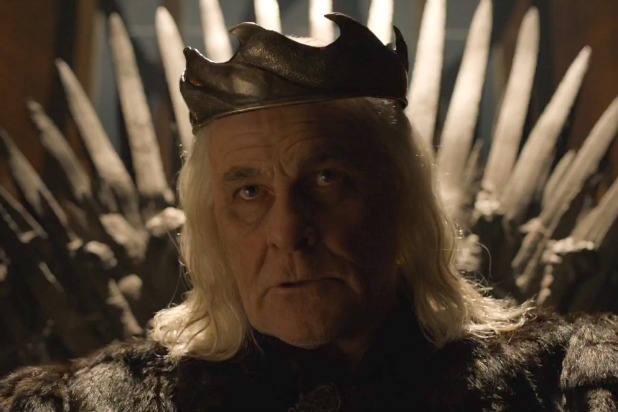SPOILERS AHEAD (I think?)
A bit of background first…
The Mad King was Aerys Targaryen, second of his name, King
of the Seven Kingdoms. He was called the Mad King for his brutality during his
reign, including hiding wildfire beneath the city to set off when the time
struck him. He was later deposed by Jaime Lannister during the sack of King’s
Landing.
The Night King we know nothing about. He has no history except
for the fact that he was apparently created long ago—and did not start his
march south until the time in which Game
of Thrones takes place.
Here’s my suggestion: Aerys Targaryen—the Mad King—is the
Whitewalkers' Night King and here are my reasons:
- The Night King rides Viserion, one of Daenerys’ dragons, at the end of Season 7, destroying the wall. According to lore, only Targaryens can ride dragons. The only reason Jon could ride one of Dany’s dragons was because he was a Targaryen. How could the Night King, if the dragon was a Whitewalker or not, ride a dragon if he was not, in fact, a Targaryen?
- In Season 8, episode 1, the Night King leaves a symbol—a warning, if you will—at Castle Black. In the center is Lord Umber and surrounding him, in a spiral shape, are the limbs of people that the dead have killed (or turned). If we recall, that spiral symbol is the very same as the Targaryen house crest, but with dragons. What is its significance? If not the Targaryen house crest, what could it symbolize?
- The dead only began to march south during the time of Game of Thrones, after Aerys’ death. Why is this? Why would the dead be marching south towards a land where they could not thrive? Why risk themselves if not for a cause? What is their motivation? Here it is…The Night King (Aerys Targaryen) is marching south to retake The Iron Throne.
- Honestly, they kind of look alike too. ------->>
- The Night King is not afraid of fire…and fire cannot kill a dragon.
- We do not know how he was buried. If The Mad King was not burned, there’s always the chance that he could have been turned. Lore says that the first Whitewalker was turned by stabbing a man with dragonglass. Who rules over the island that is known for having rich deposits of Dragonglass? Aerys Targaryen.

Winter is Coming,
Lauren








